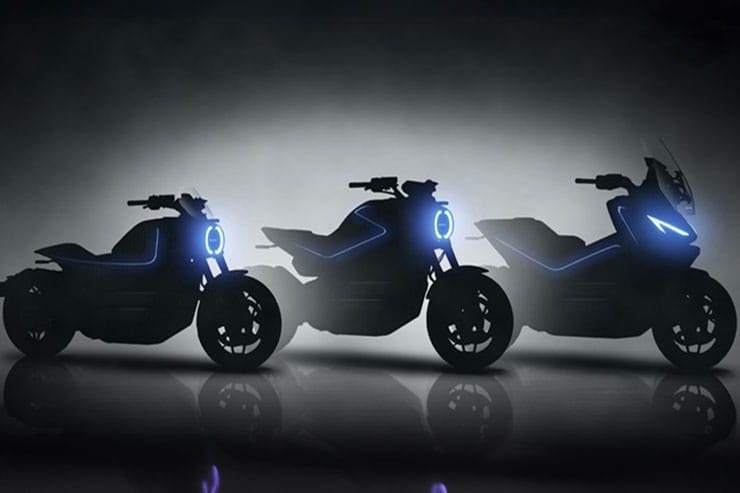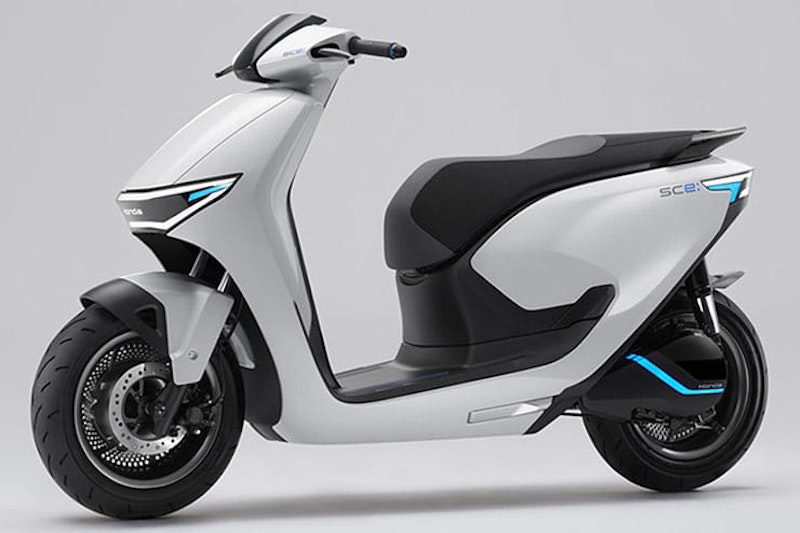Motorcycles need "key role" in net-zero transport plans, says MCIA
By Ben Purvis
Motorcycle Journalist
07.12.2023
The Government must consider both the environmental benefits of bikes and the economic improvements that they can bring to cities as a key component of its transport plans as the country moves towards net zero emissions.
That was the message from the Motorcycle Industry Association’s CEO Tony Campbell, speaking at the launch of Honda’s 2023 European Environmental Report, where he said that “it is now critical all departments across Government collaborate to fully realise this industry's potential.”
His comments came just as members of Government returned from the COP 28 climate change conference and in the same week that the Zero Emissions Vehicle Mandate was green-lit by parliament, creating an escalating quota of zero-emissions cars that manufacturers must meet from 2024 until 2035, when it hits 100%. With the environment and transport near the top of the agenda it’s vital that the benefits of bikes don’t get forgotten.
Campbell said: “As we navigate the future of transport, it's clear our sector can play a key role in supporting Government in its net-zero ambitions. I commend Honda for responding to the challenges posed by the race to carbon neutrality, with innovation and cutting-edge technology. Honda is demonstrating that industry will work with the Government, now the Government must step up its support for the sector.
“While the Department for Transport increasingly recognises the environmental value this sector represents, it is now critical all departments across Government collaborate to fully realise this industry's potential.
“Local authorities must be encouraged to consider PLVs [Powered Light Vehicles] as a transport solution to tackle diverse mobility challenges for people, goods, and businesses.
To ensure our local transport networks are dynamic and robust, Motorcycles & other PLV’s must be considered alongside active travel and public transport. Our sector can be part of an integrated transport solution, slotting in to provide affordable, independent mobility when single-occupancy car or van use is unnecessary, or in places where public transport is insufficient and active travel is impractical.”
Honda SC e: Concept previews a new generation of electric models launching in 2024
Honda – "30 new electric bikes by 2030"
Although motorcycle manufacturers aren’t yet subject to the same rising quota for zero-emission vehicles that car makers must abide by from 1st January 2024 under the Zero Emission Vehicles (ZEV) Mandate, Honda’s is already implementing its own targets for electric bikes both in Europe and globally.
The company’s 2023 European Environmental Report puts forward a target that 15% of Honda’s bikes should be electric by 2030 (a global target that was set in 2021). The company aims to reduce its overall motorcycle CO2 emissions by 34% by the same date, and by 2050 it intends to have net zero emissions for its output of bikes, cars and power products, as well as ‘net zero’ CO2 emissions from manufacturing and the use of 100% carbon-free energy.
The idea that 15% of Honda’s bikes should be electric by 2030 might not seem ambitious – after all, the escalating quota of the ZEV Mandate means zero-emission cars will have to make up 80% of its sales in the UK by the same date – but it’s still a huge turnaround. In 2023, 0.62% of Honda’s European motorcycle sales were electric bikes.
That change will come from a rapid growth in the company’s zero-emission motorcycle range. The company plans to introduce 30 electric bikes globally by 2030, with a target of producing four million units per year – increased from a target of 3.5 million.
The first of these global new electric bikes will be a scooter based on the SC e: Concept, which was shown at the Japan Mobility Show in October, and it will be followed by a range of what Honda calls ‘FUN-oriented’ models and plug-in electric bikes (rather than the battery-swappable electric models it has so far been concentrating on). The scooter is due in 2024, the first ‘FUN’ models – essentially ‘real’ electric motorcycles rather than scooters, with more performance – will come in 2025.
Like other companies in the electric arena, including LiveWire’s latest models and the upcoming Can-Am electric bikes, Honda is working on a modular electric bike platform that allows the batteries, motors and chassis to be built up from various modules, mixing and matching to create a wide range from a relatively small pool of different parts to save money on both R&D and production.
Initially, the bikes will use lithium-ion batteries similar to those of the current generation of electric motorcycles, but Honda says it’s also working on a lithium iron phosphate battery for bikes, due to be adopted in 2025. Lithium iron phosphate (LiFePO4 or LFP for short) batteries use fewer hard-to-find, expensive raw materials and are safer and more suited to rapid charging than current lithium-ion technologies, albeit with a lower energy-density (although that is improving with new generations). Further in the future, Honda intends to adopt solid-state batteries – a technology that’s more compact and energy-dense than current designs, but also with improved safety and resistance to impacts or fire.
Perhaps the most significant part of Honda’s electric bike plan, though, is the target of reducing their cost by a whopping 50% compared to the company’s current, battery-swappable models. Although Honda has been a driving force behind the idea of swappable batteries – which address range concerns and charging times – the faster-charging, cheaper LFP batteries could make battery-swapping a dead end. Honda now says it’s pursuing plug-in (as opposed to battery swap) designs, so we can expect the upcoming range of ‘FUN’ bikes to have permanently-fitted batteries and the ability to charge from roadside chargers instead.
All this costs money, and Honda has earmarked 500 billion yen (£2.7 billion) to plough into electric bikes by 2030 in pursuit of its goals.
If you’d like to chat about this article or anything else biking related, join us and thousands of other riders at the Bennetts BikeSocial Facebook page.
Share on social media:

